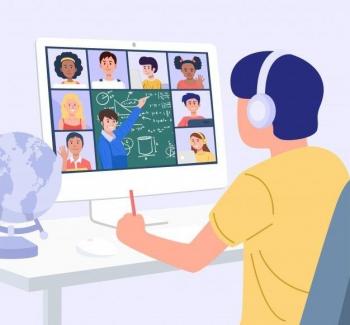The Push for Fetal Development Education in Public Schools: What You Need to Know

The Push for Fetal Development Education in Public Schools: What You Need to Know
What happens when lawmakers attempt to introduce fetal development education into public school curricula? Why is this topic sparking heated debates across the nation? How might such lessons impact students, parents, and educators? These questions lie at the heart of a growing movement led by anti-abortion legislators who argue that teaching students about fetal development promotes a "culture of life." But critics warn that these efforts may blur the line between science education and ideological messaging.
The Rise of Fetal Development Education in Schools
In recent years, several states with conservative legislatures have introduced bills mandating or encouraging public schools to teach students about fetal development. Proponents argue that these lessons provide scientifically accurate information about human growth from conception to birth. For example, some proposed curricula include detailed descriptions of embryonic stages, images of fetal development, and even interactive models.
A real-world example comes from Kentucky, where lawmakers passed a bill requiring public schools to show high school students a video depicting fetal development. Supporters claim such education helps students make informed decisions, while opponents argue it serves as subtle anti-abortion propaganda. Similar initiatives have emerged in states like Missouri, Ohio, and Iowa, often with backing from pro-life organizations.

The Controversy Surrounding Curriculum Content
At the core of the debate lies a fundamental question: Should fetal development education be purely scientific, or does it inherently carry ideological weight? Proponents insist they simply want to present biological facts, often pointing to standard embryology textbooks as their source material. They argue that understanding human development is as essential as learning about photosynthesis or the water cycle.
However, critics highlight several concerns. Some lesson plans have allegedly included disputed claims, such as the idea that fetuses can feel pain at 20 weeks (a claim contested by major medical organizations). There are also worries about how these lessons might be framed—whether they present neutral information or subtly promote particular moral views about pregnancy termination.
Practical applications of this debate can be seen in school board meetings across the country, where parents and educators passionately argue both sides. In some districts, compromise has been reached by incorporating fetal development into broader sex education programs that include information about contraception and reproductive health.

Legal and Political Dimensions
The push for fetal development education doesn't exist in a vacuum—it's part of a broader political landscape following the Supreme Court's Dobbs decision that overturned Roe v. Wade. Many of the same legislators supporting abortion restrictions are also championing these educational initiatives, seeing them as complementary strategies.
From a legal standpoint, these proposals raise questions about local control of education versus state mandates. Some bills would require the material, while others simply make it available as an optional resource. There are also First Amendment considerations regarding whether such curricula might be seen as government endorsement of particular religious or philosophical views.
A notable case occurred in Tennessee, where a law requiring schools to post "In God We Trust" signs also included provisions about teaching fetal development. This combination of measures has led some to question the underlying motivations behind the educational components.

Implementation Challenges in Schools
Even when such laws pass, implementation presents numerous practical challenges. Schools must decide where to place this content—should it be part of biology classes, health education, or stand-alone units? Teachers need appropriate training to handle potentially sensitive material, and schools must prepare for possible objections from parents.
Age-appropriateness is another significant concern. While high school students might study detailed embryology, elementary school versions of these lessons typically use simpler concepts. Some districts have adopted policies allowing parents to opt their children out of these lessons, similar to existing provisions for sex education.
In Arizona, one school district addressed these challenges by partnering with local medical professionals to develop what they described as a "strictly scientific" curriculum. However, even this approach faced criticism from some community members who felt medical professionals involved held pro-life views.

Potential Impacts on Students
Proponents argue that fetal development education could lead to healthier decisions about sex and pregnancy. Some cite studies suggesting that comprehensive reproductive education (including fetal development) correlates with lower teen pregnancy rates. They envision students gaining greater appreciation for human life and making more informed choices.
Critics, however, worry about potential negative psychological impacts. They question whether graphic images of fetal development might distress some students, particularly those who have experienced miscarriages or abortions. There are also concerns about how LGBTQ+ students might feel in classrooms where lessons emphasize traditional pregnancy scenarios.
Real-world impacts can be seen in student reactions. In some schools where these programs have been implemented, students have organized both support groups and protests, reflecting the divisive nature of the issue among youth themselves.

Looking Ahead: The Future of This Debate
As this movement grows, several developments seem likely. First, legal challenges may test the boundaries of what constitutes permissible content in public schools. Second, the increasing polarization around reproductive issues suggests this debate will remain heated. Finally, the 2024 election cycle may bring even greater attention to these educational initiatives as candidates take positions on them.
Some educators advocate for middle-ground approaches, such as teaching fetal development alongside comprehensive sex education that includes information about contraception and reproductive rights. Others suggest focusing on scientific literacy more broadly, giving students tools to evaluate all health-related information critically.
Whatever direction this issue takes, it highlights fundamental questions about the role of public education in addressing morally charged topics and preparing students to navigate complex personal decisions.







